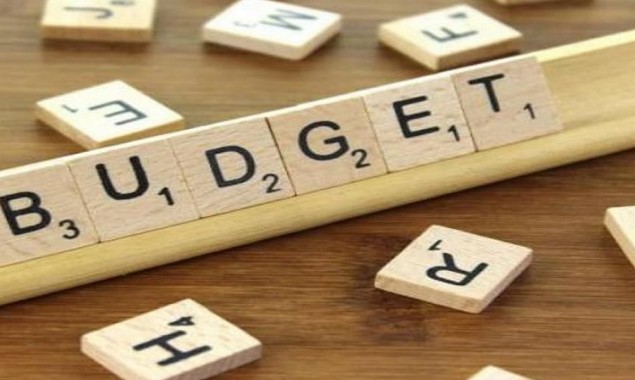Sindh presents Rs1.477 trillion deficit budget; no new tax levied
KARACHI: The provincial government on Tuesday presented the Rs1.477 trillion Sindh Budget...

The Khyber Pakhtunkhwa Announced Its Budget Plan For The Fiscal Year 2021-22
Khyber Pakhtunkhwa (KPK) government presented a budget of Rs1,118.3 billion for the Fiscal Year 2021-22.
The government announced that the budget will be allocated as Rs371 billion for the Annual Development Plan (ADP) and Rs747.3 billion for the current expenditure.
Chief Minister Khyber Pakhtunkhwa Mahmood Khan said that the current budget was amid the development of the province and providing quality service delivery to its citizens.
He added that the government presented the budget that focused on the economy and providing maximum relief to its citizens. He said it was possible due to the successful handling of the COVID-19 pandemic.
“We plan to introduce long-overdue reforms on pensions: accountability and rewards of public servants; championing e-government and strengthening management of public finances,” he said.
The government announced a 37pc increase in the salaries of the employees who did not take allowances from the government.
Khyber Pakhtunkhwa Finance Minister Taimur Jhaga said that out of the total budget, Rs919 billion has been allocated for settled districts and Rs199.3 for the merged tribal districts.
From the allocated budget of Rs371 billion of ADP, Rs270.7 billion has been allocated for settled districts and Rs100.3 million for merged districts.
Similarly from the budget of Rs747.3 billion for current expenditure, Rs648.3 billion has been allocated for settled districts and Rs99 billion for merged districts.
The budget is based on five pillars including a record increase in salaries of government employees, development budget, devoted services to people, increasing Khyber Pakhtunkhwa’s own resource revenue, and introduction of goal-oriented reforms and innovation in the overall governance system.
The minister said that the two pillars ‘development plus budget’ and ‘service delivery budget’ were introduced under Rs500 billion and it would be spent on mega projects including Sehat Plus Cards, provision of furniture to government schools, and increase in medicines’ budget to the public sector with priorities to payment of salaries of doctors, nurses, and teachers besides provision of medicines to hospitals and fuel to Rescue 1122 ambulances.
About income and revenue generation, the target is Rs 1,018 billion, which the minister said would be achieved from taxes, duties and financial resources.
Rs475.6 billion would be collected from federal taxes, Rs57.2 billion through a federal divisible pool, Rs26.5 billion through gas and oil royalty and surcharges, Rs74.7 billion under hydel new profit, Rs75 billion for provincial tax and non-tax revenue, Rs85.8 billion through foreign development assistance and Rs3.3 billion as foreign development assistance, Rs187.7 billion under special assistance grant for the merged areas and Rs132.5 billion from other revenue resources.
About expenditure of budget, the minister said a total of Rs374 billion would be spent on salaries in merged districts and Rs314 billion in settled districts. In the case of providing pension, he said Rs92.1 billion would be utilized, out of which Rs0.1 billion for merged districts and Rs92 billion for settled districts.
He proposed a record amount of Rs244.6 billion for Provincial Development Programs. He said the government will spend Rs17.4 billion on the Annual Development Program, including Rs2.4 billion for merged areas and Rs85.8 billion for settled districts, while a record Rs19.9 billion is to be obtained from the federal government.
The salaries of government employees are being increased by 37% including a 20% increase in Functional or Sectoral Allowance, 10% increase in Adhoc Relief Allowance, and 7% in house rent for those employees who do not benefit from the government’s accommodation scheme.
Jhagra said that a 100pc increase in pension allocation was recorded, and 13.8pc was recorded of the total budget in 2021-22. Two proposals were presented to lower pension expenses; either increase the age of retirement of government employees to 55 years or complete 25 years of service which would, in turn, save Rs12 billion on the budget per year.
Jhagra said a 100% increase in pension expenditure has been witnessed in the last couple of years and the share of pensions, which was only 1% in 2003-04, and had jumped to a record 13.8pc of the total budget in 2021-22.
Similarly, Rs1 billion per year would be saved if the pension of deceased employee’s family members would change.
Out of the total budget, Rs23 billion has been allocated to health insurance schemes.
The budget also allocates funds to construct, rehabilitate and upgrade over 2,100 schools to increase enrollment capacity.
Catch all the Pakistan News, Breaking News Event and Latest News Updates on The BOL News
Download The BOL News App to get the Daily News Update & Follow us on Google News.